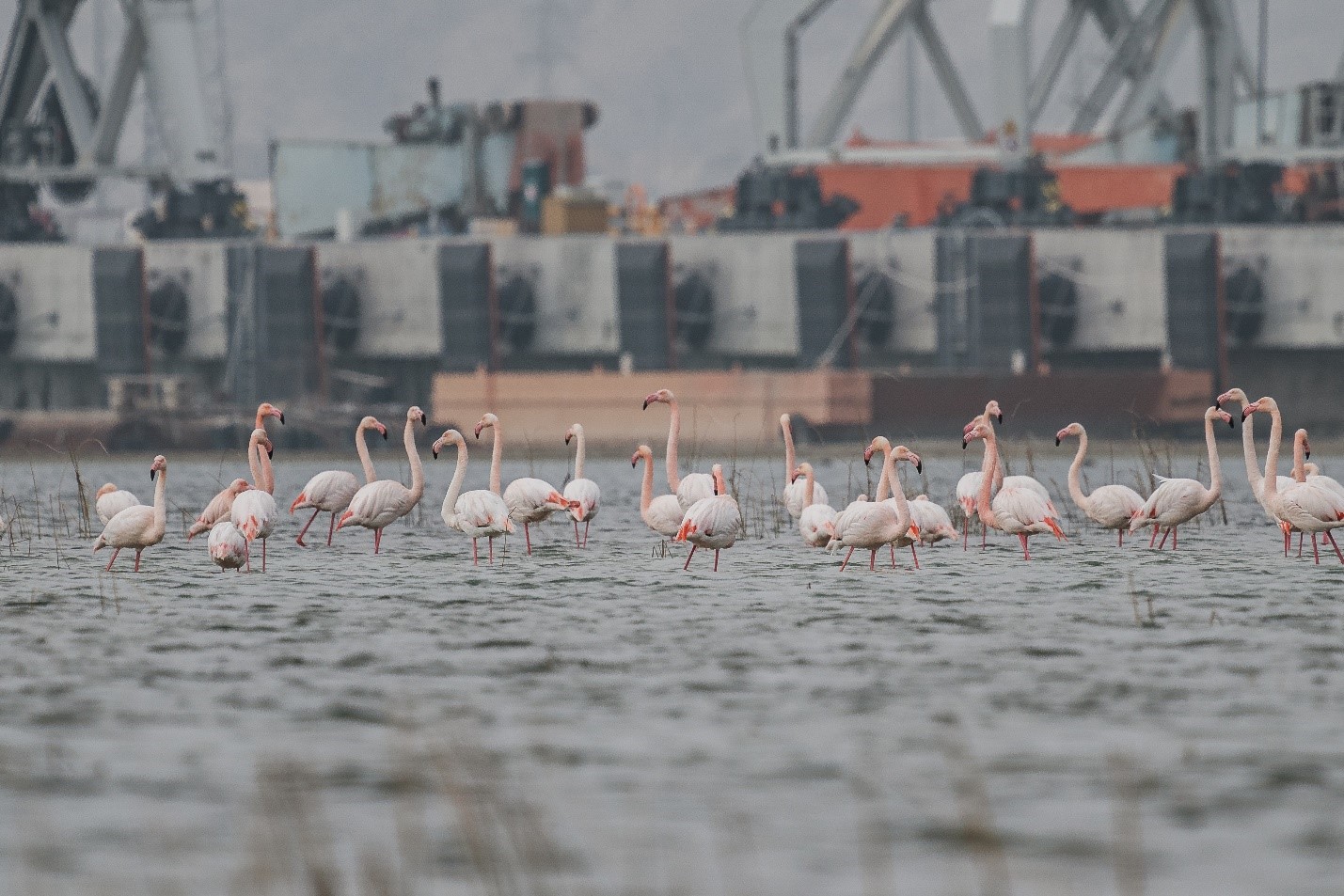Environmental management policy

"Baku International Sea Port" LLC is a multipurpose port that provides services to the shipping and logistics industries.
We are committed to providing our stakeholders, including our employees, contractors, tenants, visitors and the port community operating on our site, with jobs that are consistent with the environmental and sustainability policy. For this reason, the environmental and sustainability policy has been prepared.
This policy serves the interests of all partners of Port of Baku, and is also essential for ensuring the safety and sustainable development of our environmental protection activities.
In the course of its activities, the port cares about the protection of the environment, by constantly improving the work carried out in this direction, and thus protecting the well-being of its partners.
Port's Concept of Environmental Sustainability:
The purpose of the concept is to create a sustainable Green Port. It covers issues such as efficient use of energy resources, waste management, protection of biodiversity and ecosystems, and protection from the effects of climate change.
To achieve active and sustainable environmental management, the port has committed to:
- Apply the best environmental management practice of the ports corporate activities, including the activities, products and services of its business partners and contractors that may have an environmental impact;
- Have a culture of environmental sustainability with clearly communicated commitments;
- Develop and regularly review environmental and sustainable development policies, relevant goals and tasks to ensure sustainability and monitor progress towards sustainable development;
- Implement, continuously maintain and improve the Ports Environmental Management System to ensure compliance with the requirements of the relevant legislation and all other obligations assumed by the Company;
- Implement effective management of interrelated issues such as environment, health, safety and quality;
- Maximize resource efficiency, make efforts to reduce consumption and waste, prevent pollution, conserve energy, encourage the reuse of materials, and reduce greenhouse gas emissions;
- Cooperate with customers, suppliers, business partners, government agencies and other stakeholders to achieve sustainable environmental performance through consultation, clear contractual requirements and commitments;
- Choose environmentally friendly technologies when purchasing necessary equipment, facilities and vehicles, as well as give priority to the use of electric power to reduce the impact of environmental and socio-economic aspects whenever possible;
- Invest in infrastructure to prevent environmental impact;
- Conduct environmental trainings to raise awareness of sustainable development and instill respect for the environment among employees in their daily activities;
- Try to actively use various types of renewable energy;
- Carry out the necessary work to ensure a high level of preparedness to prevent or mitigate ecological disasters;
- Actively support initiatives that go beyond our commitments;
- Liaise with stakeholders, especially the public, in a transparent and accessible manner through outreach and educational cooperation;
- Monitor and implement the environmental policies and governing principles of representative organizations such as the European Sea Ports Organization and other relevant bodies;
- Prepare an annual report on environmental protection, reflecting the progress of the port’s environmental activities and current work in this area, and post it on the Company’s website.


